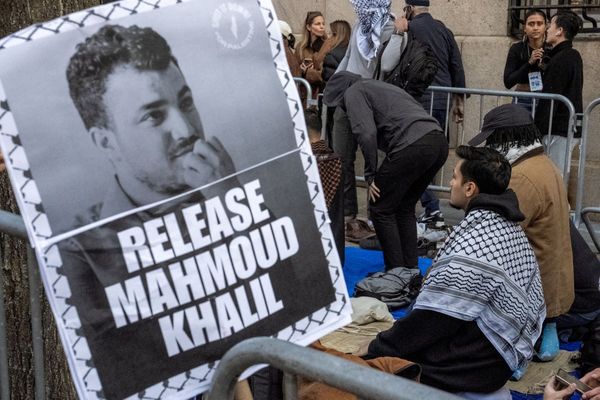
Donald Trump appealed a ruling in which a Colorado judge said he could not be disqualified from the presidential ballot under the 14th amendment to the US constitution, even though he engaged in insurrection by inciting the deadly January 6 attack.
The former president took issue with the finding that he participated in insurrection in connection with the attack on the Capitol staged by his supporters.
“The district court ruled that section three [of the 14th amendment] did not apply to the presidency, because that position is not an ‘officer of the United States’,” lawyers for Trump said in a court filing, responding to the ruling last week.
“The district court nonetheless applied section three to President Trump, finding that he ‘engaged’ in an ‘insurrection’. Should these findings be vacated because the district court self-admittedly lacked jurisdiction to apply section three to President Trump?”
The group that filed the suit on behalf of six state petitioners, Citizens for Responsibility and Ethics in Washington (Crew), also lodged an appeal.
It argued: “Section three of the 14th amendment, passed after the civil war, excludes from federal or state office those who engaged in insurrection against the constitution after previously taking an oath to support it.
“Because the district court found that Trump engaged in insurrection after taking the presidential oath of office, it should have concluded that he is disqualified from office and ordered the secretary of state to exclude him from the Colorado presidential primary ballot.”
The 14th amendment is otherwise generally known for extending equal protection under the law to all people in the US.
Trump faces 91 criminal charges – 17 arising from attempts to overturn the 2020 election – and civil threats including a defamation trial arising from a rape allegation a judge called “substantially true”.
Nonetheless, he dominates polling regarding the Republican presidential nomination and challenges the Democratic incumbent, Joe Biden, in general election polling.
The Colorado suit is one of a number seeking to use the 14th amendment to keep Trump off the ballot. Judges have also ruled against plaintiffs in Michigan and Minnesota. Experts are split over whether the amendment should prevent Trump from seeking office again.
Speaking to the Guardian this month, Eric Foner, the pre-eminent historian of the post-civil war era, discussed “the most important amendment added to the constitution since the Bill of Rights in 1791”.
The question of whether the president is “an officer of the United States”, key to the Colorado ruling, “hasn’t been decided”, Foner said.
“It certainly seems the normal understanding of the term ‘officer’ is someone holding office,” he said. “The president certainly holds office. When the constitution was ratified, there was no president … so it’s unclear … But I don’t see how you can … exclude the president from this language.
“If you take the whole of section three, I think it’s pretty clear that they are trying to keep out of office anybody who committed the acts that section three describes.”
But though Foner said January 6, when Trump sent rioters to the Capitol to stop certification of his defeat to Biden in 2020, was “certainly [an attempt] to halt a constitutional procedure”, whether it was an act of insurrection or rebellion remained open to question.
Most experts expect challenges to Trump under the 14th amendment to reach the US supreme court. As there is no case law on the question, Foner said, legal challenges to Trump will inevitably “take a long time”.
“It would be weird if Trump is elected next fall,” he said, “then a year into his term of office he’s evicted because he doesn’t meet the qualifications. We saw how Trump reacted to actually losing an election. But now, if he won and then was kicked out of office, that would certainly be a red flag in front of a bull.”







